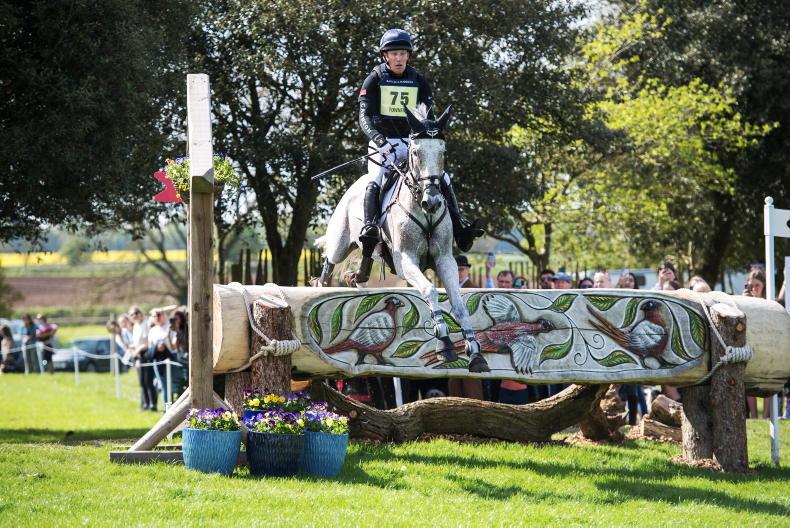BADMINTON Horse Trials 2023 was packed with drama from start to finish, and the bad weather made for testing conditions underfoot, especially on the cross-country course. There were many exceptional displays of horsemanship from those who completed the course, including Ireland’s Austin O’Connor, and also from those who recognised quickly when their horses were beginning to struggle. Eleven riders chose to retire on course, and save their horses for another day. A further six riders withdrew their horses before the start of the cross-country phase, including both Laura Collet and Tim Price, who had been sitting in seventh and ninth place respectively after the dressage phase.
Unfortunately, there were also some incidences of horses becoming very tired in the conditions, and this made for uncomfortable scenes. Current world number four ranked rider Oliver Townend was given an FEI eventing recorded warning for ‘dangerous riding/a series of dangerous jumps’, after his ride aboard a visibly tiring Swallow Springs. The combination was stopped on course, and subsequently eliminated by the ground jury.
The FEI website gives details of the disciplinary processes currently in operation, including the types of penalties in use across all disciplines operating under FEI rules. The FEI also publish a disciplinary list of penalised athletes. Yellow warning cards are given across all disciplines, with the exception of endurance riding.
A yellow card is issued for ‘abuse of the horse’, ‘incorrect behaviour’, ‘non-compliance with the rules of the sport’, and ‘non-compliance with headwear’. If the same person receives one or more yellow cards at the same or any other international event within one year of receiving their first, they are automatically suspended for two months.
An extract from Article 527 of the FEI eventing rules states that a yellow card will be systematically awarded for all cases of excessive use of the whip, any other cases of abuse of the horse, excessive pressing of a tired horse, and riding an exhausted horse coupled in addition to disqualification.
The less severe penalty of an eventing recorded warning card can be awarded for an athlete continuing after three refusals, a fall or any form of elimination, for any other case of dangerous riding, all cases of minor blood found on a horse and caused by the athlete, and for pressing a tired horse. The process by which the severity of the penalty is decided is unclear, especially given the overlaps in the type of offences listed.
The disciplinary list is a challenging read. Between 5th March 2022 and 6th March 2023, there were 38 yellow cards issued to international show jumping riders worldwide.
Sixteen of these were awarded for ‘abuse of the horse’. There were 17 official warnings issued in the same time period, of which one was for abuse of the horse.
Between May 3rd 2022 and May 3rd 2023, yellow cards were issued to three international dressage riders. There were no incidences of abuse of the horse. Between May 4th 2022 and May 5th 2023, there were 71 yellow cards issued to international event riders worldwide. 55 of these were for abuse of the horse. Details vary, but they include excessive use of whip, bit or spurs, blood on the horse, and over-riding.
There were 147 eventing recorded warning cards awarded, and 118 of these were for dangerous riding. Examples given include several bad/dangerous jumps in a row, continuing after three refusals, being out of control, and riding too slow. There were six cases of athletes pressing a tired horse.
There is surely a case to answer here for the FEI penalty system, and for the sport of eventing.


 This is a subscriber-only article
This is a subscriber-only article
 It looks like you're browsing in private mode
It looks like you're browsing in private mode











SHARING OPTIONS: